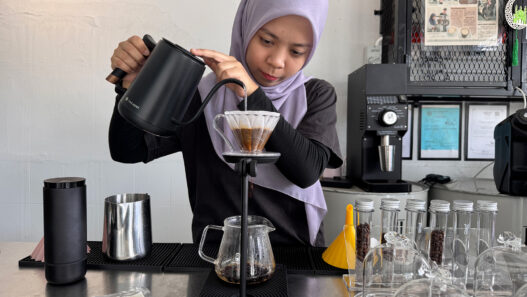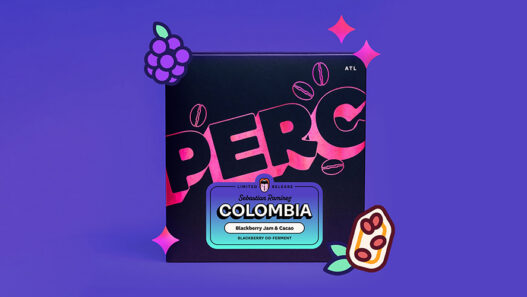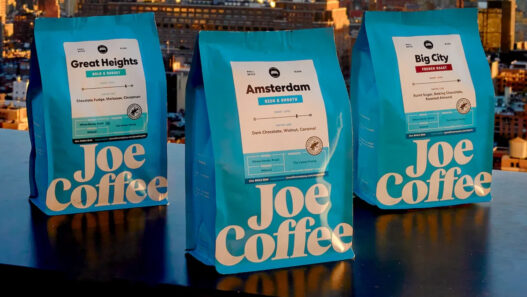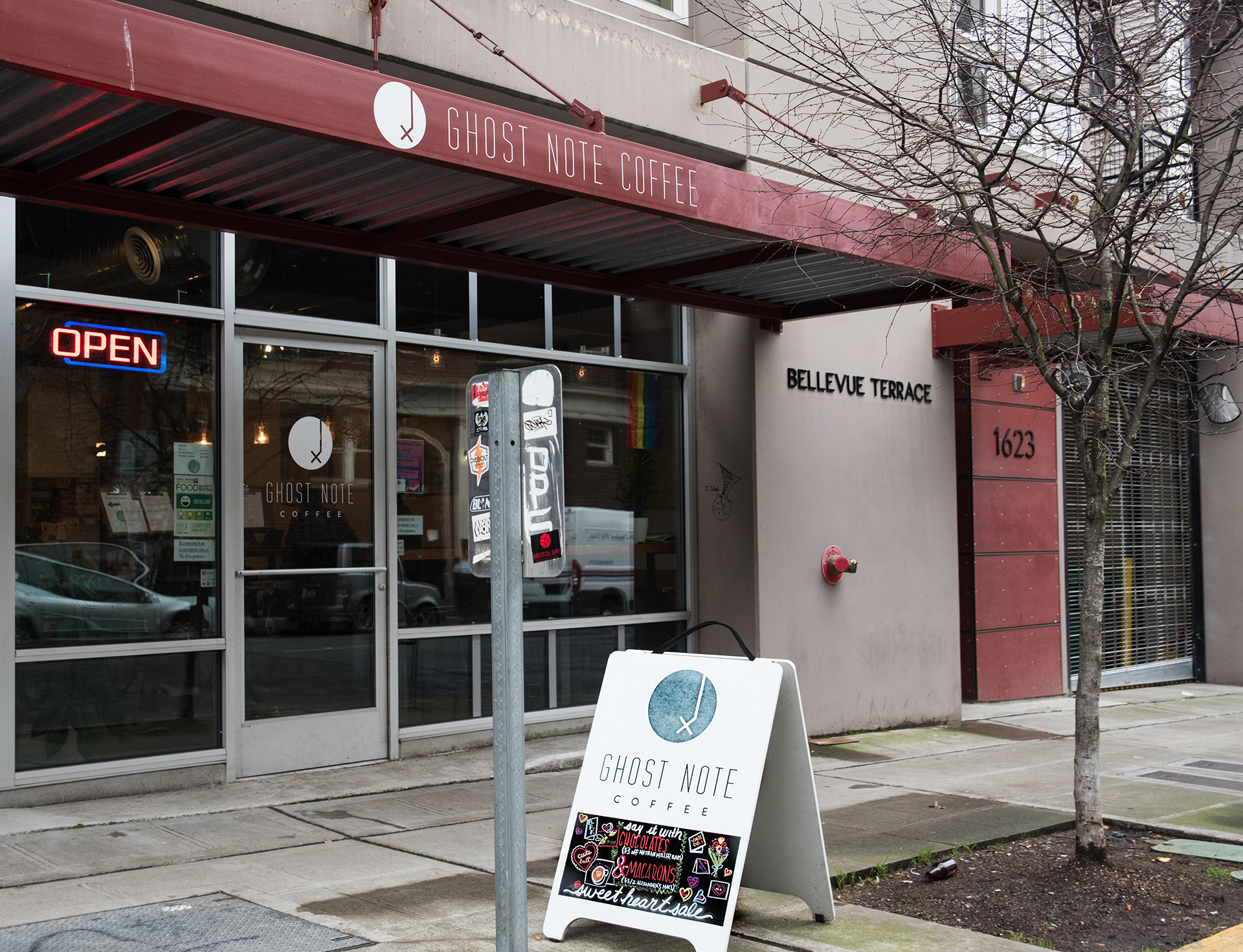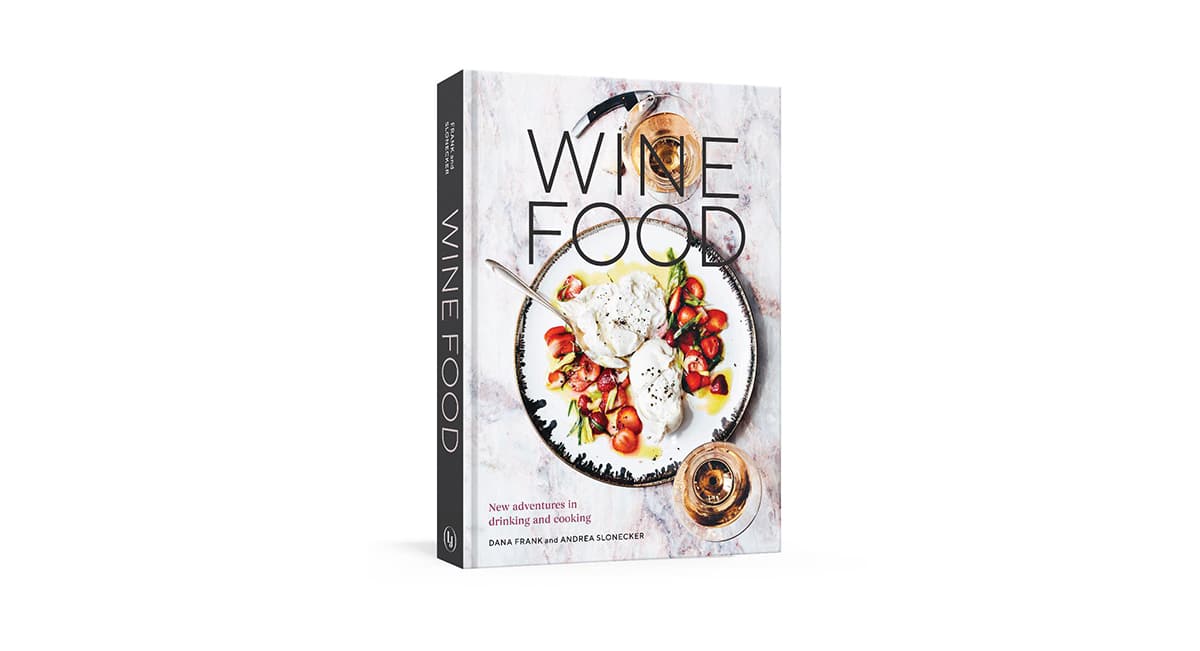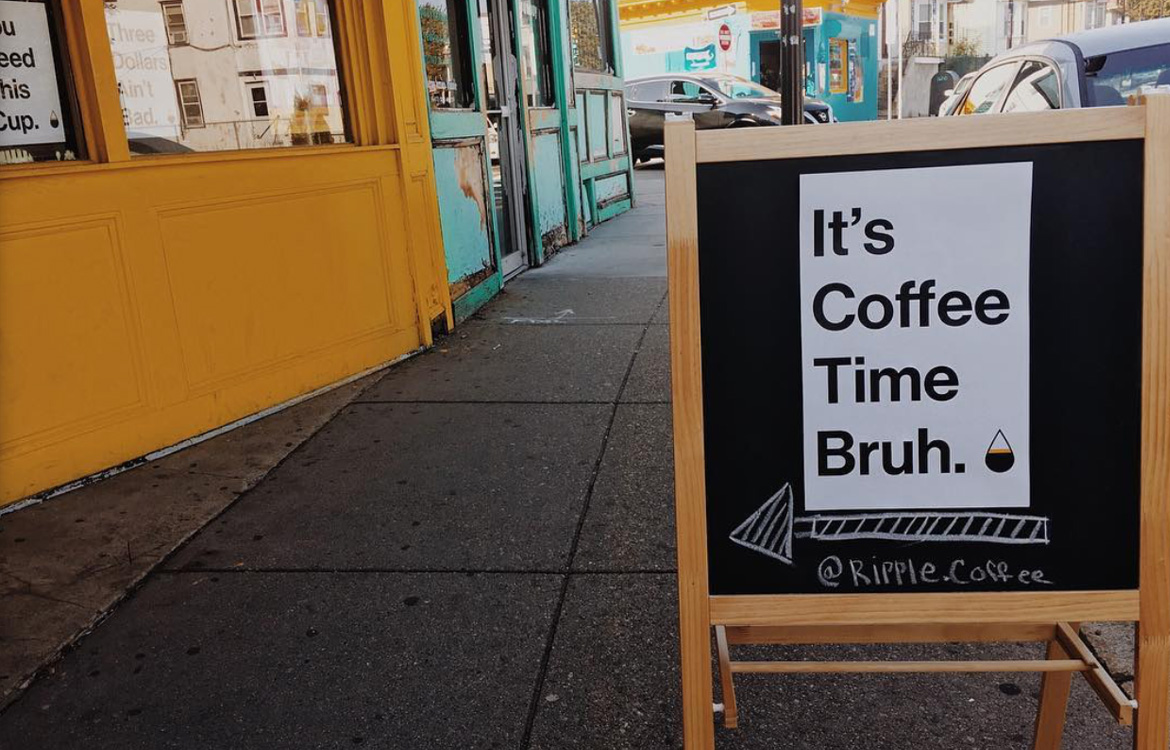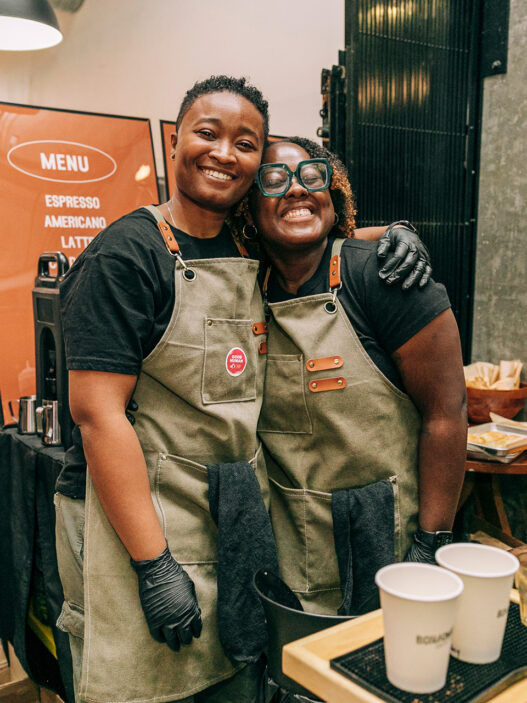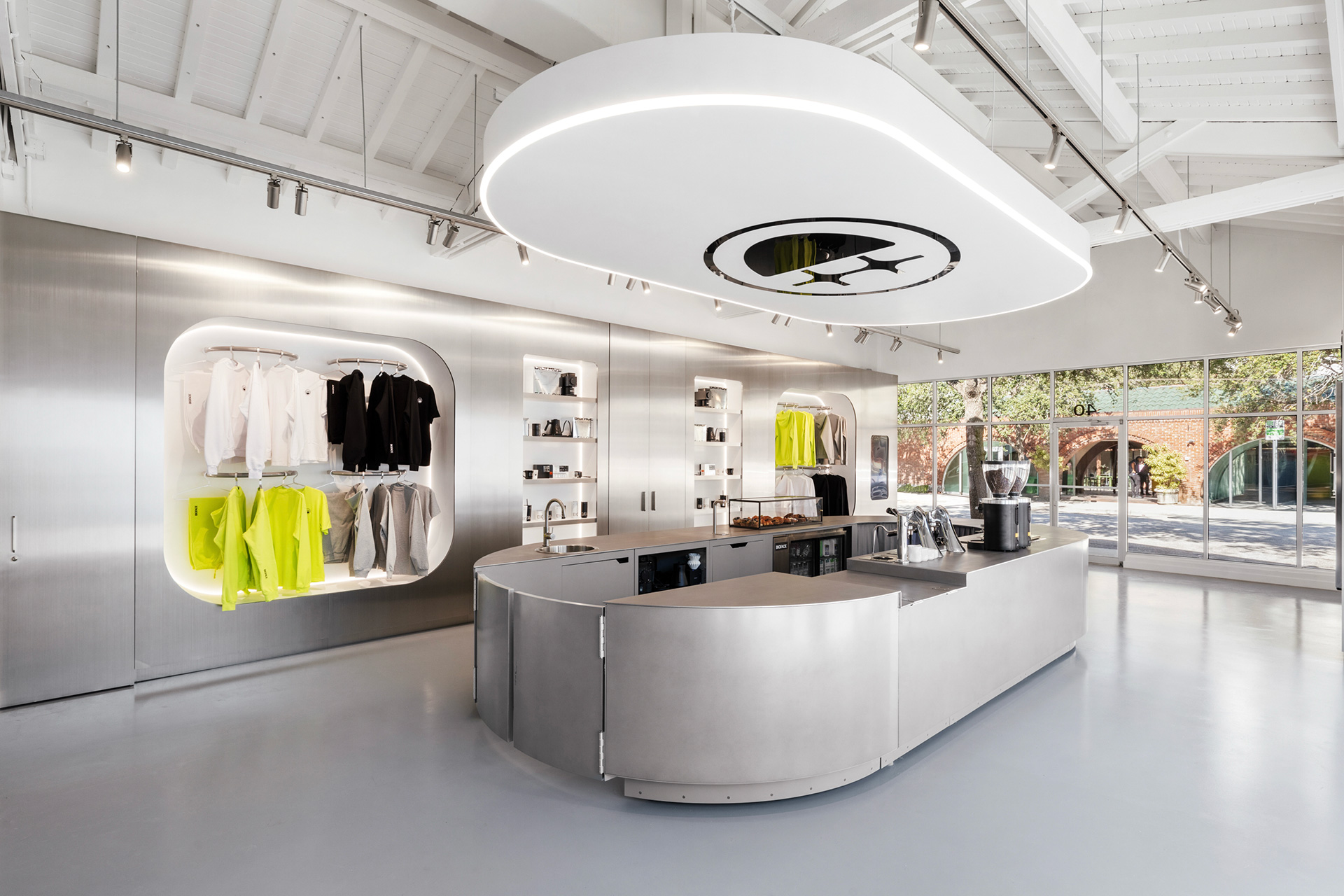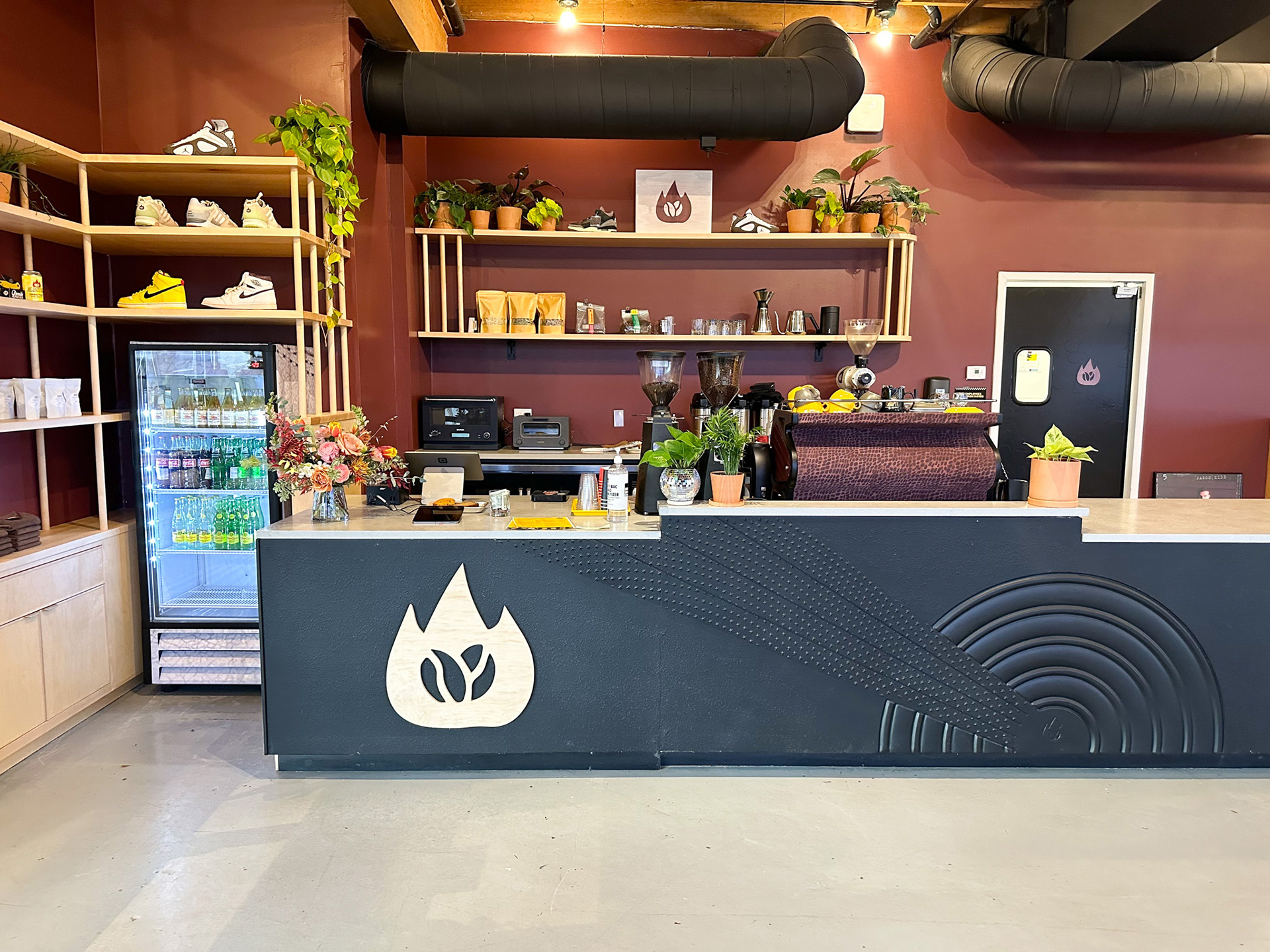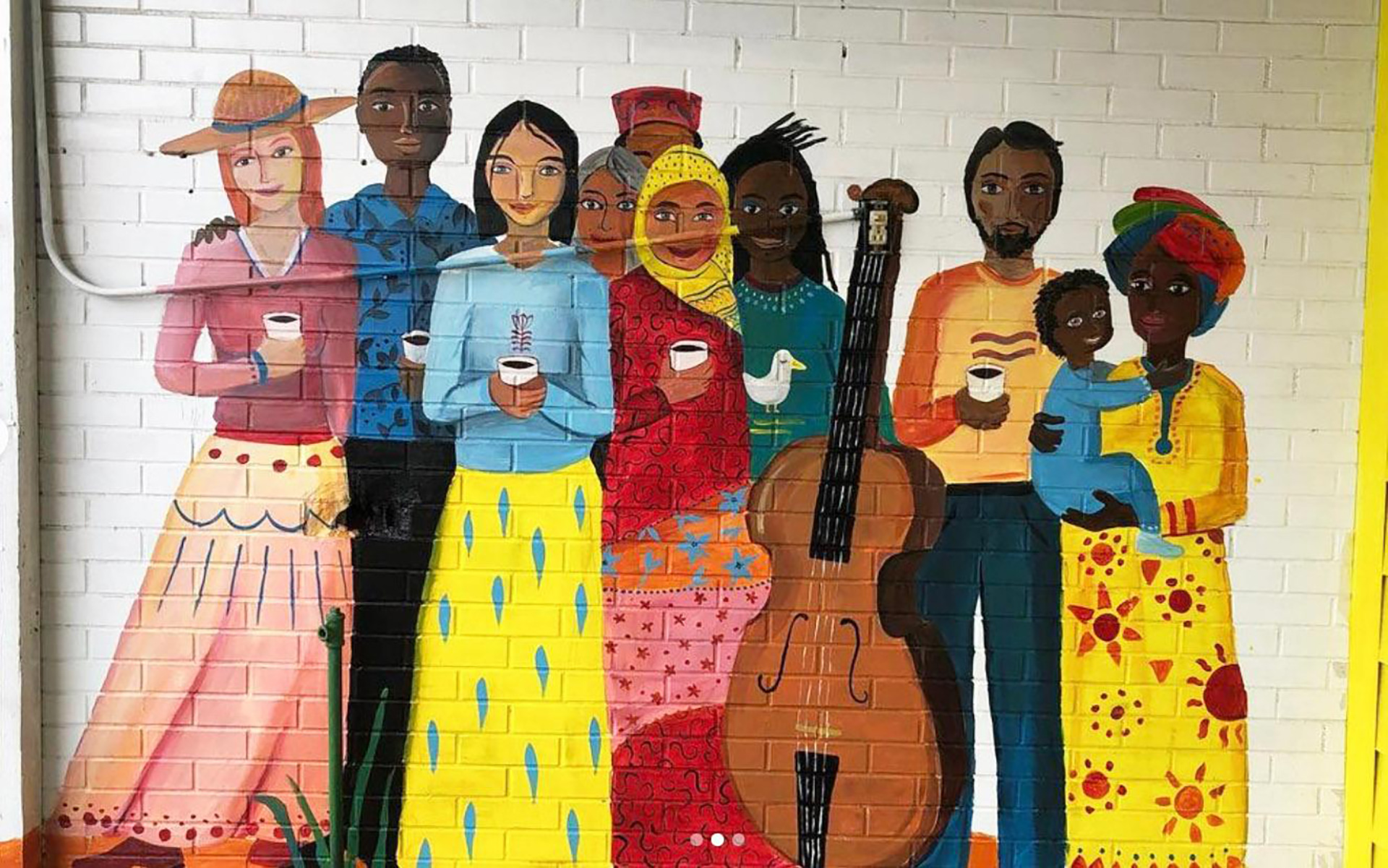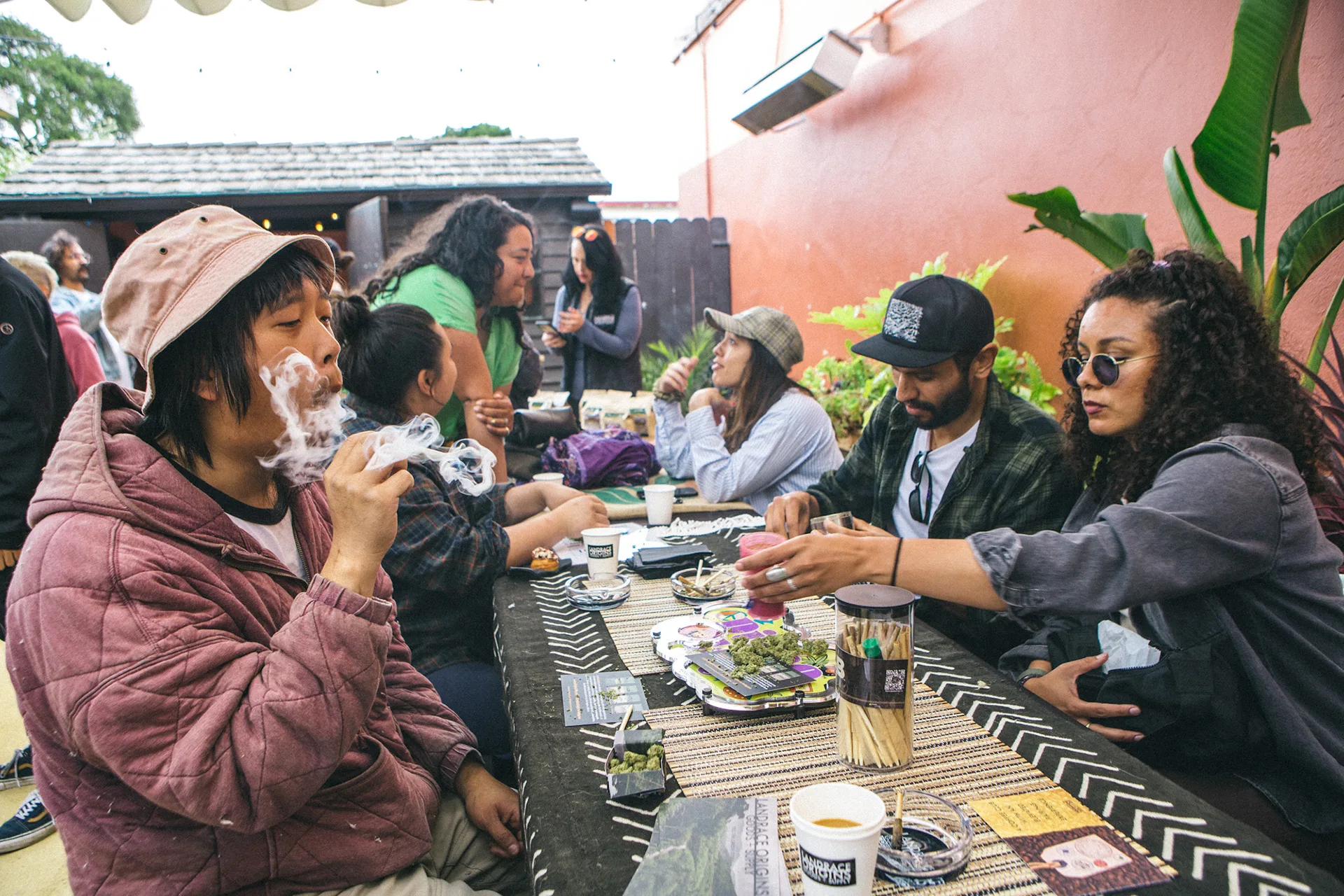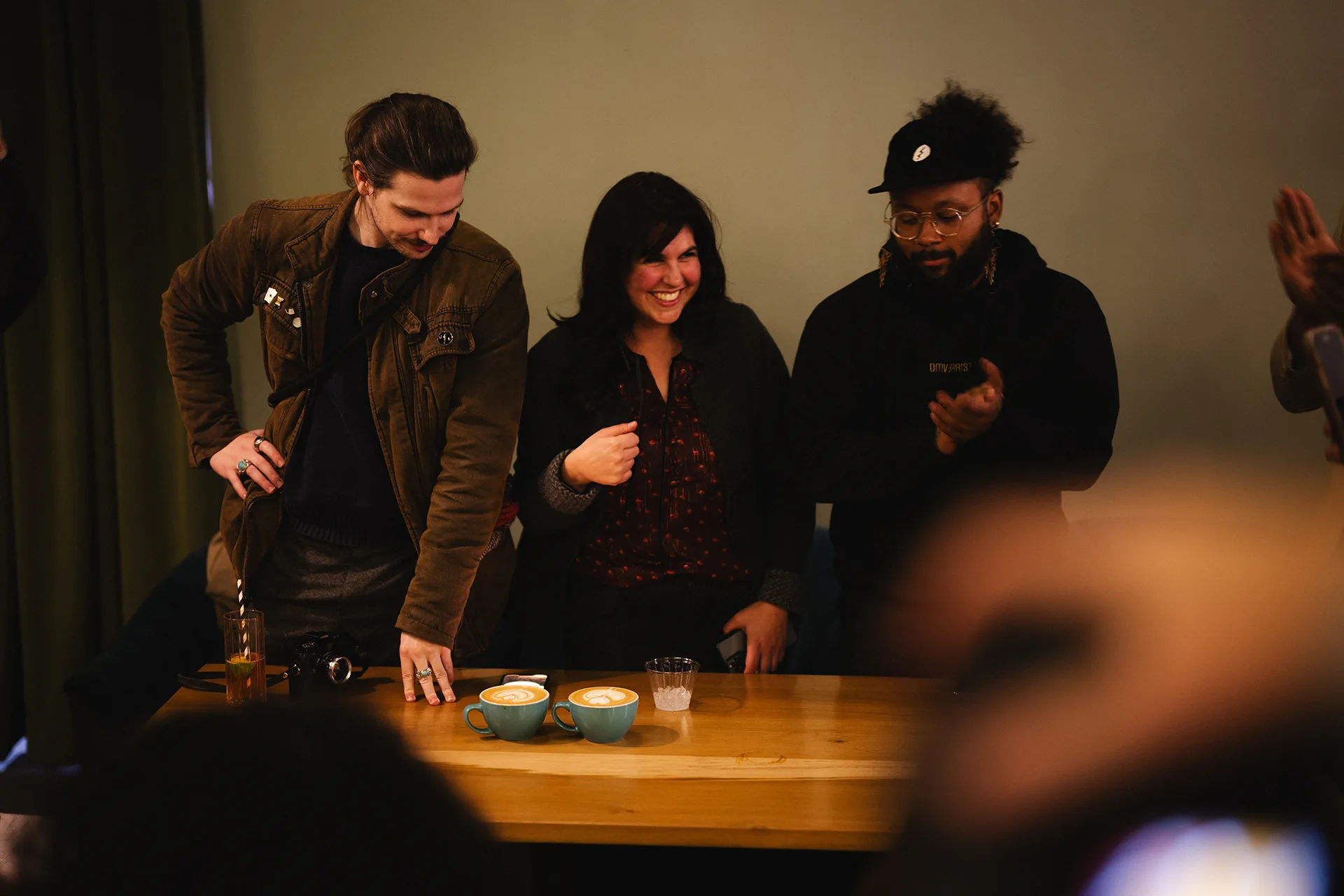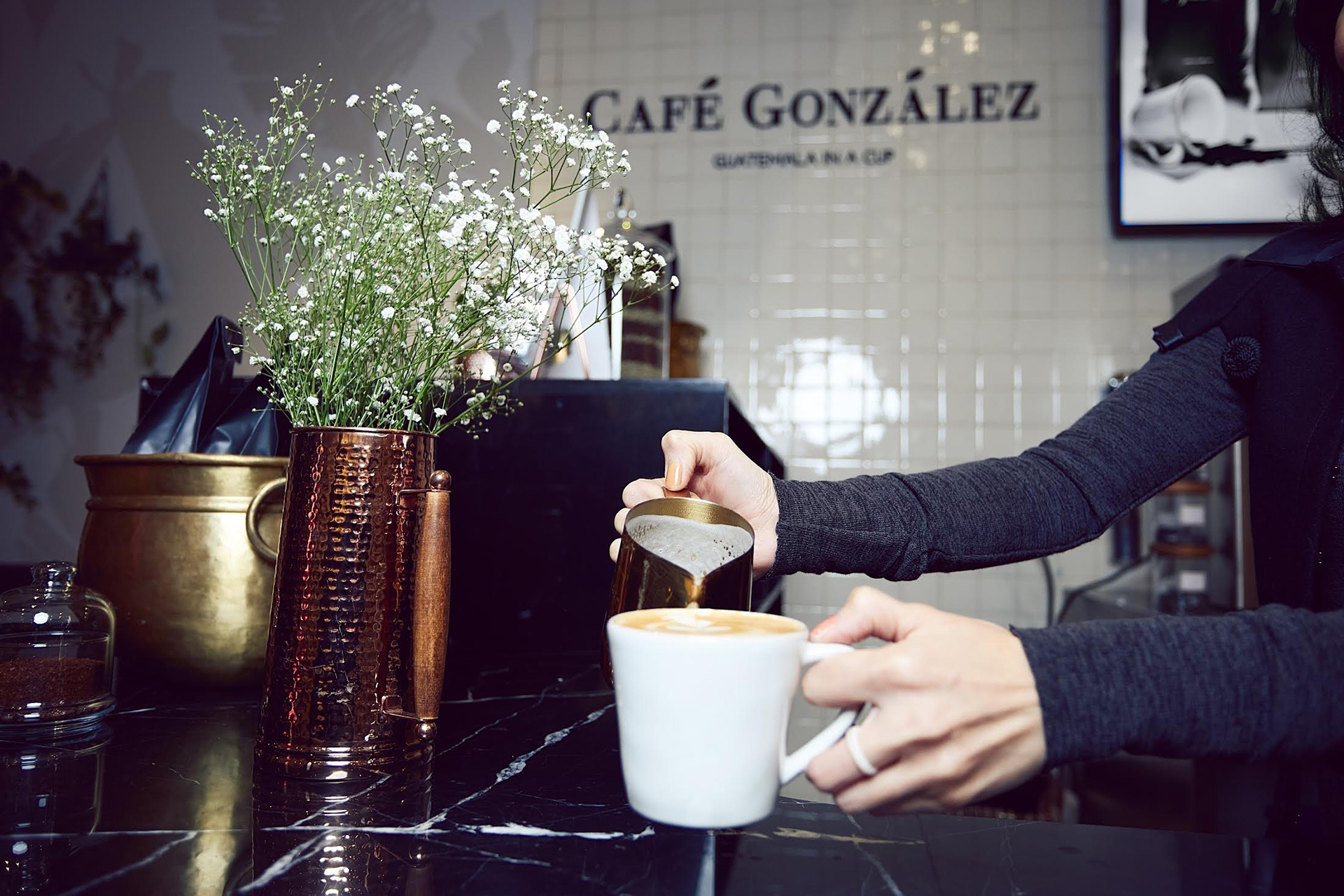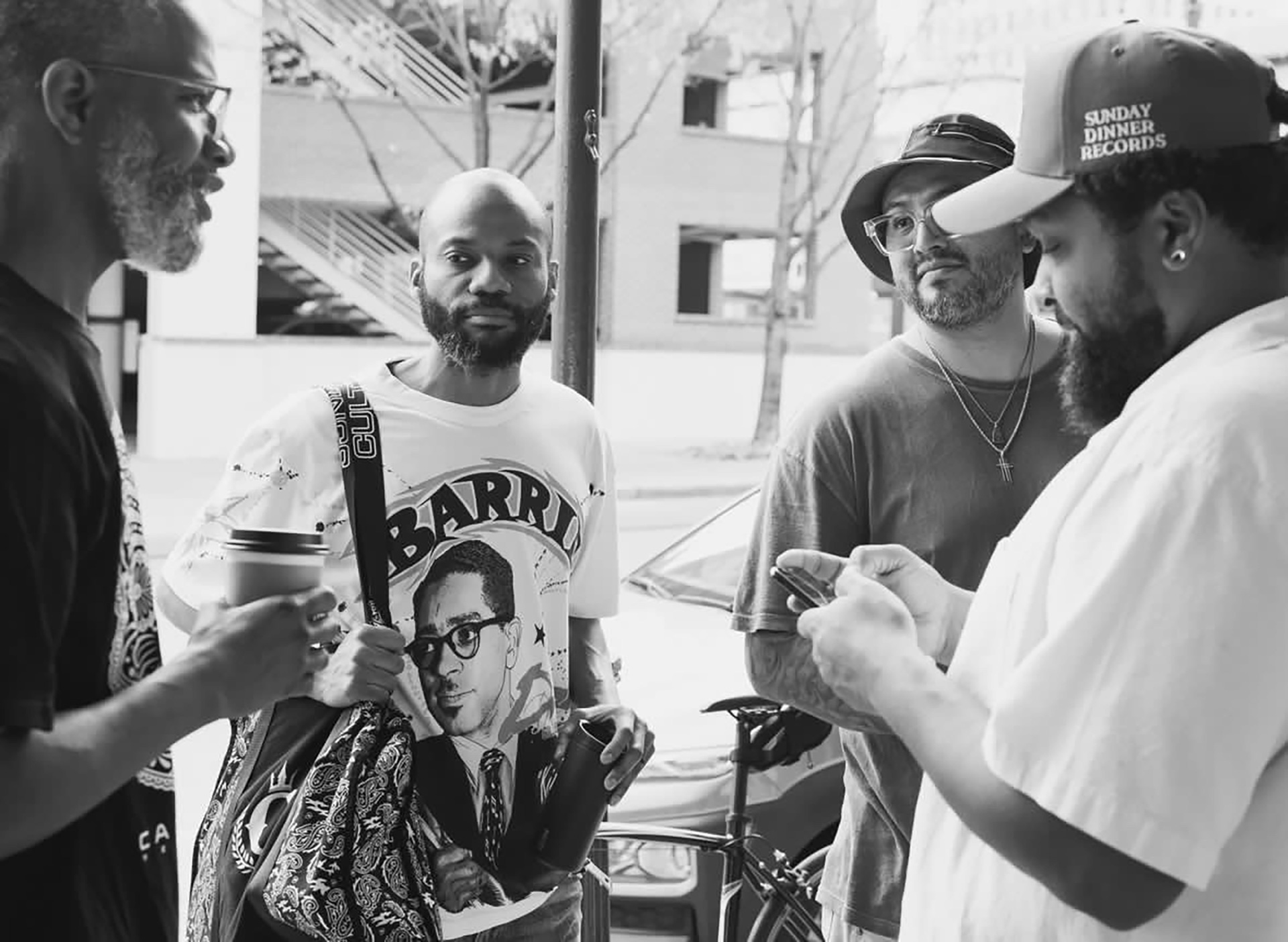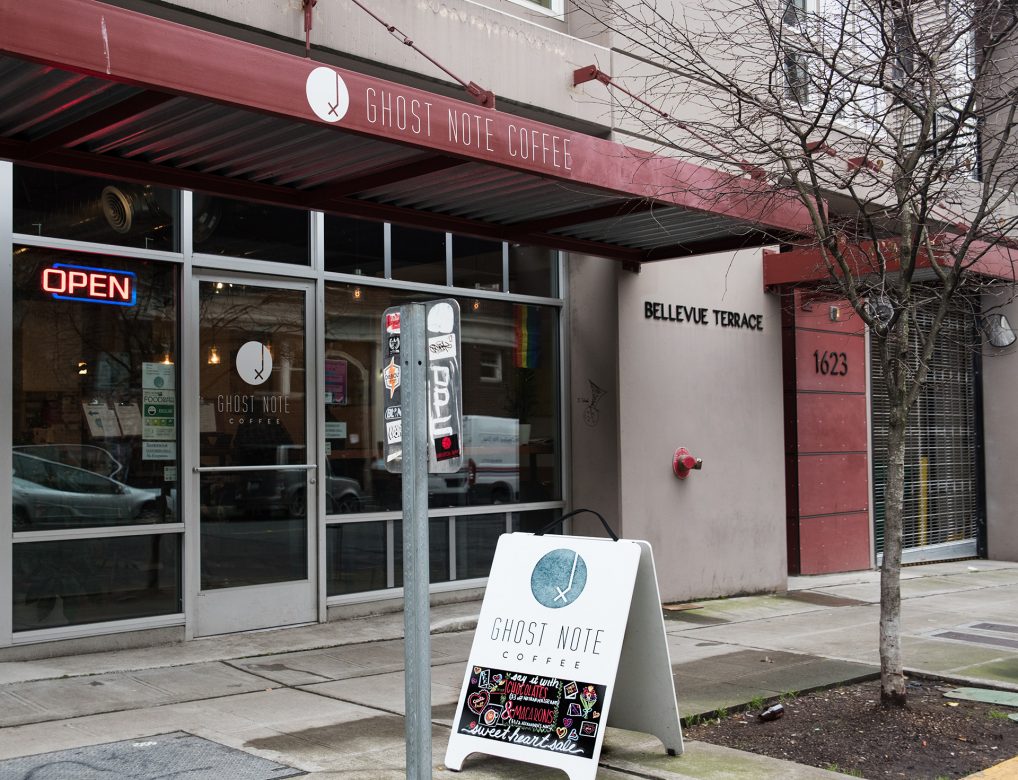
It was only a matter of time before Christos Andrews opened Ghost Note Coffee. The Capital Hill cafe that bills itself as a “modern, progressive coffee shop” is positioned to offer Seattleites a gastronomic coffee experience. Take it’s signature coffee cocktail, called The Sun Ship, for example. The drink, served in a martini glass, is a mixture of espresso, in-house smoked grapefruit rosemary syrup, coconut water, sparkling water, and lime.
“Any professional in any sort of field, art or otherwise, comes to a place where you feel like you’ve hit a wall,” Andrews says. “I felt somewhat limited until now.”
At Ghost Note, he’s the type of owner who pulls a towel from behind the bar 30 seconds after walking in to wipe up a smudged bit of creamer on the counter. His eyes flash around the cafe as he speaks, making peace signs at customers breezing through the entrance.
The prevalence of cocktails on cafe menus is on the rise. Ghost Note’s includes a concoction of African espresso, tonic water, juniper sage concentrate, and cucumber. And still another, dubbed the Firefly Tonic, that features tonic water, Burundi espresso, Lemon Lavender shrub, lemon bitters, and of course, in-house rose lavender syrup.
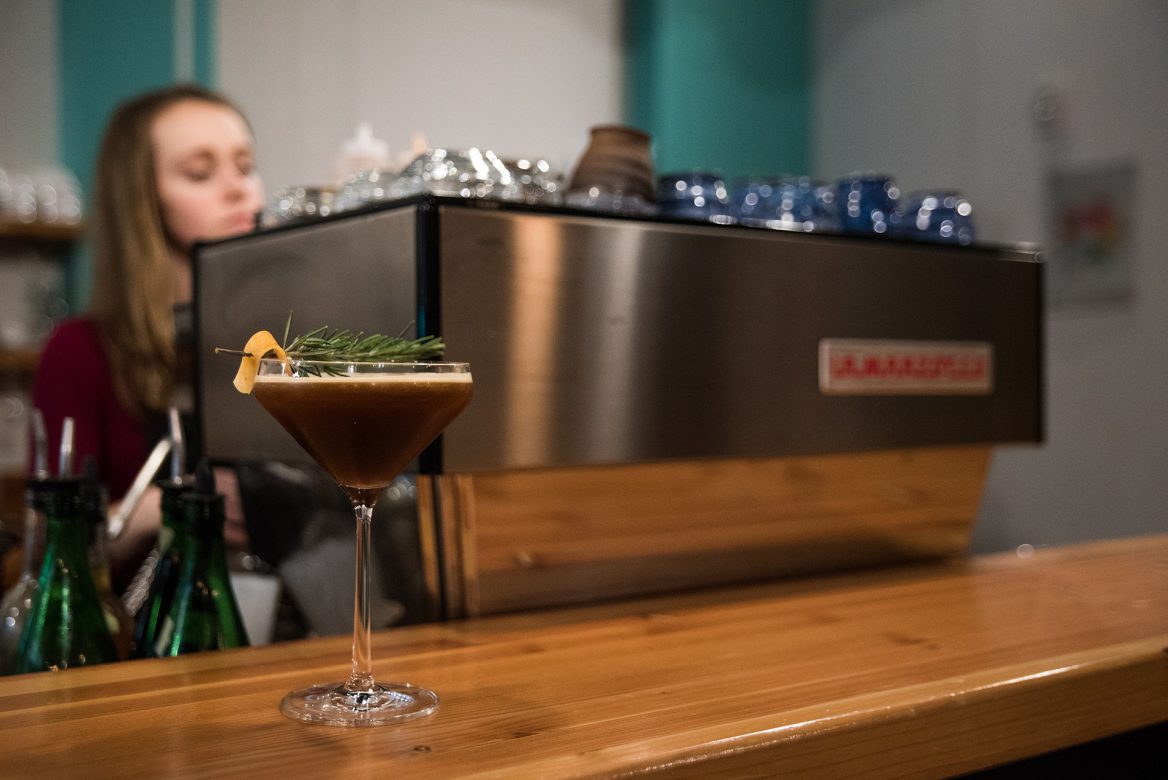
Andrews made his entrance into the food world while working at Whole Foods in Nashville, where he was living attempting to make a go at drumming in the city’s music scene. Ghost Note’s name refers to a musical note that at once carries rhythmic value and no discernible pitch. For a drummer, a ghost note is what lends personality and feel to an average piece of music.
“But after I got my first barista job, it was game over,” Andrews says with a grin.
Instead of a drum kit, his instrument of choice at Ghost Note is a La Marzocco Linea. Andrews and his friends jokingly refer to the shop’s signature method of pulling shots as a Blast Brew.
“We put a flow restrictor on the pump,” Andrews says, “turning the pressure down to five-and-a-half bars, and the temperature up to 203, with a 14-and-a-half brew ratio.”
Other members of the Seattle coffee community, like Alex Johnstone and David Rothstein of Convoy Coffee, appreciate the way Ghost Note brings a culinary passion to coffee.
“We’re big fans of Christos,” Johnstone says. Of the Blast Brew, he adds: “It’s like pulling an espresso-esque shot at the volume of twelve ounces.”
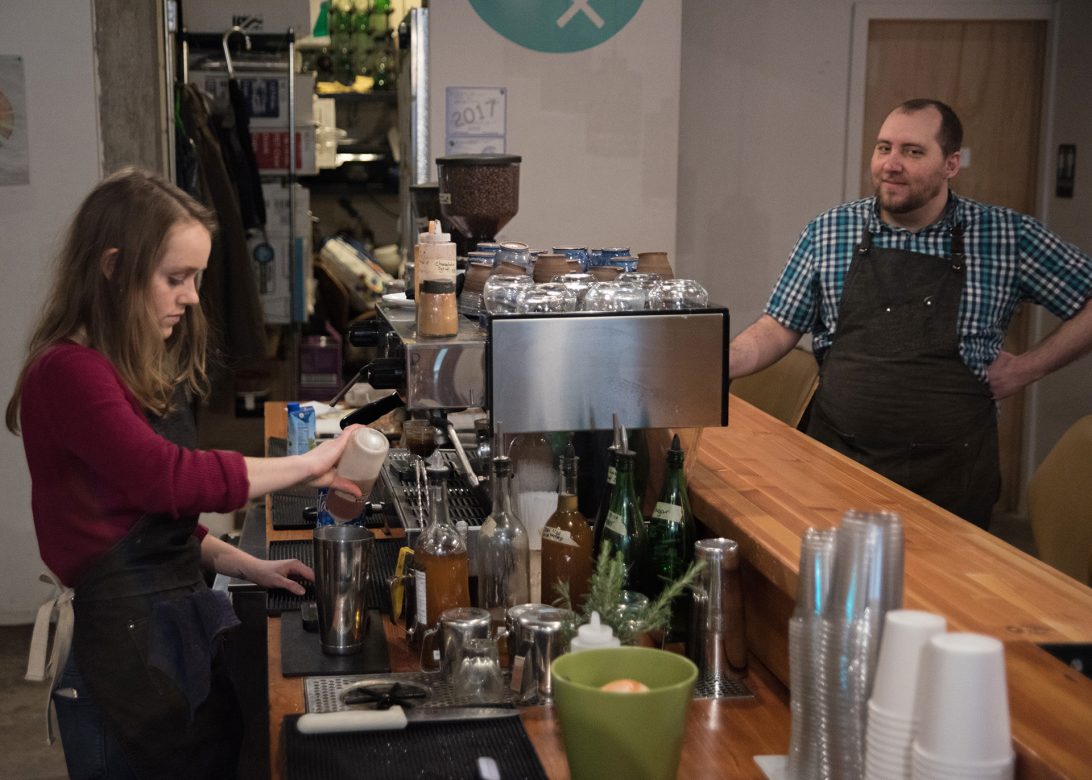
Ghost Note regularly stocks Seattle’s Broadcast Coffee, and sources food items from other local outfits like Salmonberry Goods and Columbia City Bakery, where Andrews expanded the coffee program. The shop’s mugs come from nearby Yu Tang Ceramics, and it adds a bit of imported flare from a guest roaster program, which has featured more far-afield roasters like Colorado’s Sweet Bloom Coffee Roasters.
It should be noted that Andrews’ price point is higher than that of other area shops. He and his partner, a software engineer named Lee Hampton from New York, surveyed the pricing of other cafes in Capital Hill and set theirs in the high end. Then they added 10 percent.
That’s because Ghost Note doesn’t accept tips. Andrews uses the added income of higher-priced menu items to pay baristas competitive wages as well as for holidays and two weeks of paid vacation.
“Ghost Note is different because they’re quietly doing things better than they need to be done,” Convoy’s Rothstein says.
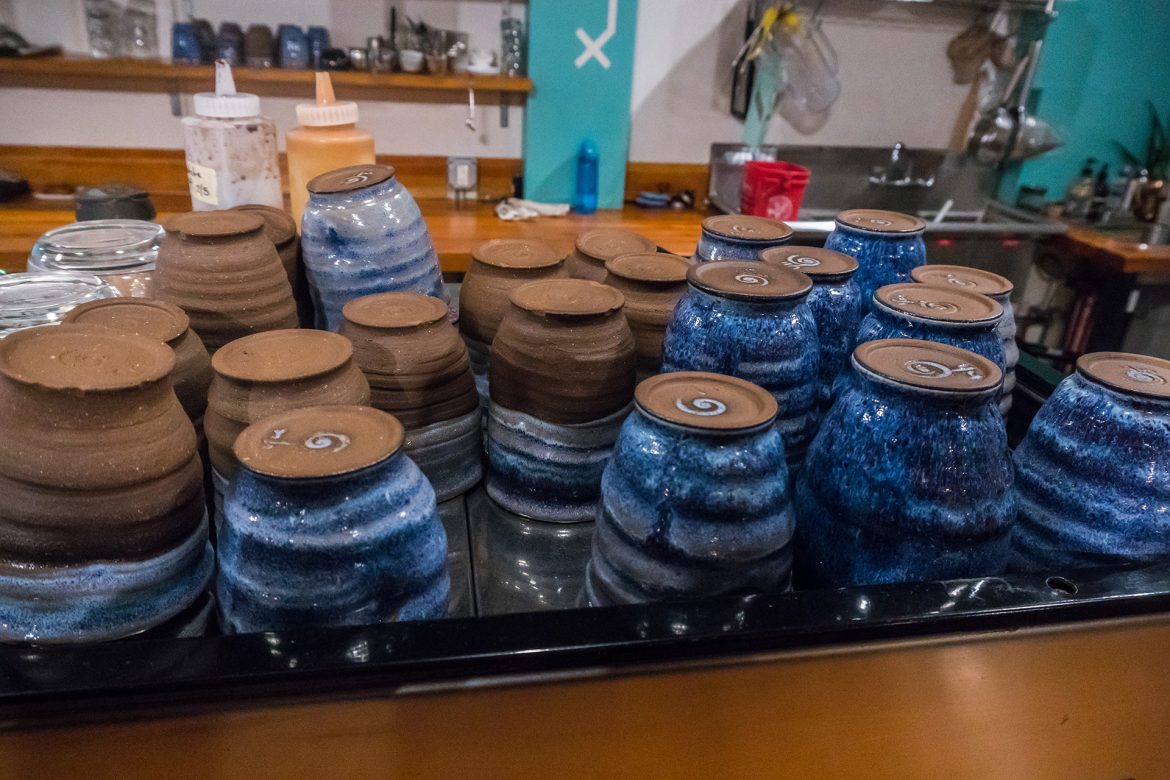
Andrews won America’s Best Espresso contest in 2013 while working for Tony’s Coffee out of Bellingham. Before that, he was directing coffee at Neptune Coffee, then Tougo Coffee for two years. Last year, his Sun Ship garnered a semi-finals nod at the Coffee Masters NYC competition.
“There were times when I had like three jobs,” Andrews says of his dedication to his work. “And I’m technically still a trainer and consultant at the Seattle Barista Academy.” When Ghost Note opened, Andrews ran the cafe by himself.
“I don’t recommend it,” Andrews says with a laugh.
Andrews says he has no idea where Ghost Note will be in the future. But he hopes to open another shop—he knows that much. And he also knows he doesn’t want to hit a ceiling. Today, Ghost Note is good. In five years?
“I’m hoping we’ll be significantly better,” he says.
Paolo Bicchieri is a freelance journalist based in Seattle. This is Paolo Bicchieri’s first feature for Sprudge.
Photos by John Clem.




